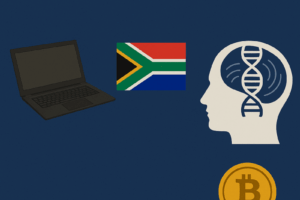
Islam: Core Teachings and Relevance in the Modern World
Islam, a monotheistic Abrahamic religion, has profoundly influenced the social, political, and cultural landscapes of numerous societies since its inception in the 7th century CE. The core teachings of Islam, encapsulated in the Qur’an and the Hadith, emphasize monotheism, justice, compassion, and the moral and ethical conduct of individuals and societies. However, the contemporary relevance of Islam is often overshadowed by associations with extremism and terrorism. This article explores the fundamental tenets of Islam, its modern-day relevance, and the complex issue of Islamic extremism, with a particular focus on the schism between Islamic economic principles and modern capitalist practices.
Core Teachings of Islam
Islam’s core teachings are rooted in the Five Pillars, which are essential acts of worship and the foundation of a Muslim’s faith and practice. These pillars are Shahada (faith), Salah (prayer), Zakat (charity), Sawm (fasting), and Hajj (pilgrimage) (Esposito, 2002). The Qur’an, believed to be the literal word of God as revealed to Prophet Muhammad, and the Hadith, sayings and actions of the Prophet, provide comprehensive guidance on all aspects of life.
The Five Pillars
- Shahada (Faith): The declaration of faith, stating that “There is no god but Allah, and Muhammad is the messenger of Allah,” underscores the monotheistic essence of Islam (Esposito, 2002).
- Salah (Prayer): Muslims are required to perform five daily prayers facing Mecca, fostering a direct and personal connection with God (Esposito, 2002).
- Zakat (Charity): Muslims must give a portion of their wealth to the needy, reflecting the importance of social justice and economic equity in Islam (Esposito, 2002).
- Sawm (Fasting): During the month of Ramadan, Muslims fast from dawn to sunset, emphasizing self-discipline, empathy for the poor, and spiritual growth (Esposito, 2002).
- Hajj (Pilgrimage): Muslims who are physically and financially able must undertake a pilgrimage to Mecca at least once in their lifetime, symbolizing unity and equality among believers (Esposito, 2002).
Ethical and Social Teachings
Islamic ethics emphasize justice (‘adl), compassion (rahma), and the importance of community (ummah). The Qur’an and Hadith advocate for honesty, humility, and respect for others, regardless of their faith (Kamali, 2008). Additionally, Islam strongly condemns exploitation and emphasizes the moral responsibility of individuals and societies to promote social welfare.
Relevance of Islam in the Modern World
Islam’s emphasis on social justice, compassion, and ethical conduct remains relevant in addressing contemporary global challenges, such as poverty, inequality, and social injustice. The principles of Zakat and Sadaqah (voluntary charity) encourage wealth distribution and support for the marginalized, aligning with modern humanitarian efforts (Esposito, 2002).
Economic Principles: Usury and Capitalism
One of the significant points of contention between Islamic teachings and modern economic practices is the prohibition of usury (riba). The Qur’an explicitly forbids usury, viewing it as exploitative and unjust (Qur’an 2:275-279). This prohibition contrasts with the modern capitalist system, which often relies on interest-based financial transactions (Chapra, 2000). Historically, Christianity also condemned usury, but this stance softened over time, particularly with the rise of capitalism (Nelson, 1969). The Islamic prohibition of usury reflects a broader ethical framework that prioritizes economic justice and social welfare over profit maximization.
Islamic Extremism and Terrorism
The phenomenon of Islamic extremism and terrorism is a complex issue with multiple contributing factors, including political, social, and economic grievances. Extremist groups often exploit religious narratives to justify violence and achieve their political objectives, distorting the core teachings of Islam (Esposito, 2002).
Root Causes
- Political and Social Grievances: Many regions with significant Muslim populations have experienced prolonged political instability, foreign intervention, and socio-economic deprivation. These conditions can create fertile ground for extremist ideologies (Ayoob, 2004).
- Economic Disparities: The clash between Islamic economic principles, such as the prohibition of usury, and the realities of the global capitalist system, contributes to feelings of disenfranchisement and injustice. The perception that modern economic practices are inherently exploitative can fuel extremist sentiments (Chapra, 2000).
- Identity and Cultural Conflicts: The imposition of Western cultural and political values in Muslim-majority societies can lead to identity crises and cultural alienation, further exacerbating tensions (Esposito, 2002).
The Role of Education and Dialogue
Addressing misconceptions about Islam and combating extremism also requires a robust emphasis on education and interfaith dialogue. Educating both Muslims and non-Muslims about the true teachings of Islam can help dispel stereotypes and foster mutual understanding.
Educational Initiatives
- Promoting Accurate Knowledge: Curricula that accurately reflect Islamic teachings can help counteract the narratives of extremist ideologies. This includes emphasizing the importance of justice, compassion, and ethical conduct in Islam (Esposito, 2002).
- Critical Thinking and Dialogue: Encouraging critical thinking and open dialogue within Muslim communities can empower individuals to challenge extremist interpretations of Islam. Promoting diverse perspectives within Islamic scholarship can also help prevent the monopolization of religious discourse by extremists (Kamali, 2008).
- Interfaith Programs: Initiatives that promote interfaith dialogue can help bridge the gap between different religious communities. By fostering mutual respect and understanding, such programs can reduce cultural and religious tensions (Esposito, 2002).
Addressing Structural Inequities
To effectively combat the root causes of extremism, it is essential to address the structural inequities that contribute to feelings of disenfranchisement and injustice.
Economic Reforms
- Inclusive Economic Policies: Implementing economic policies that promote inclusivity and social justice can help address the disparities that fuel extremist sentiments. This includes creating opportunities for marginalized communities and ensuring equitable access to resources (Chapra, 2000).
- Alternative Financial Systems: Developing financial systems that align with Islamic economic principles, such as interest-free banking, can provide ethical alternatives to conventional capitalist practices. These systems can promote economic justice and reduce exploitation (Chapra, 2000).
Political Stability and Social Justice
- Addressing Political Grievances: Efforts to resolve political conflicts and promote stable governance in Muslim-majority regions are crucial for reducing the appeal of extremist ideologies. This includes supporting democratic processes, ensuring human rights, and addressing corruption (Ayoob, 2004).
- Promoting Social Justice: Policies that promote social justice, including access to education, healthcare, and employment, can help address the socio-economic disparities that contribute to radicalization. Ensuring that all individuals have the opportunity to participate fully in society is essential for fostering peace and stability (Esposito, 2002).
Conclusion
Islam, with its emphasis on monotheism, justice, compassion, and ethical conduct, offers valuable principles for addressing contemporary global challenges. However, the relevance of these teachings is often obscured by the associations of Islam with extremism and terrorism. Understanding the root causes of extremism, including the schism between Islamic economic principles and modern capitalist practices, is crucial for fostering a more just and peaceful world. Education, dialogue, and structural reforms are essential components in addressing these issues and promoting the true teachings of Islam.
By promoting accurate knowledge, fostering critical thinking, and addressing structural inequities, it is possible to combat extremism and highlight the positive contributions of Islam to modern society. In doing so, we can work towards a more inclusive and harmonious world where the core values of justice, compassion, and ethical conduct are upheld.
References
- Ayoob, M. (2004). Political Islam: Image and Reality. World Policy Journal, 21(3), 1-14.
- Chapra, M. U. (2000). The Future of Economics: An Islamic Perspective. The Islamic Foundation.
- Esposito, J. L. (2002). What Everyone Needs to Know about Islam. Oxford University Press.
- Kamali, M. H. (2008). Shari’ah Law: An Introduction. Oneworld Publications.
- Nelson, B. N. (1969). The Idea of Usury: From Tribal Brotherhood to Universal Otherhood. University of Chicago Press.
- The Qur’an.



